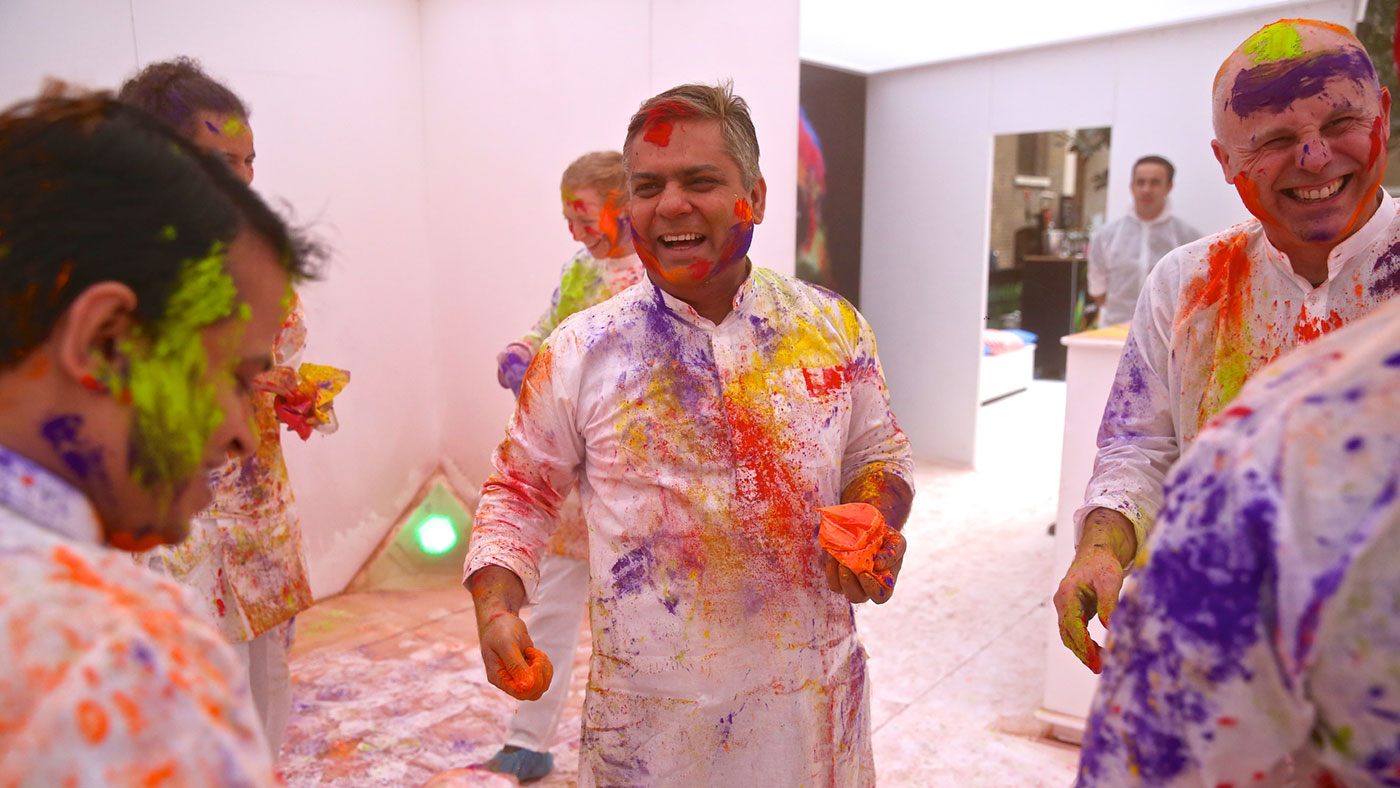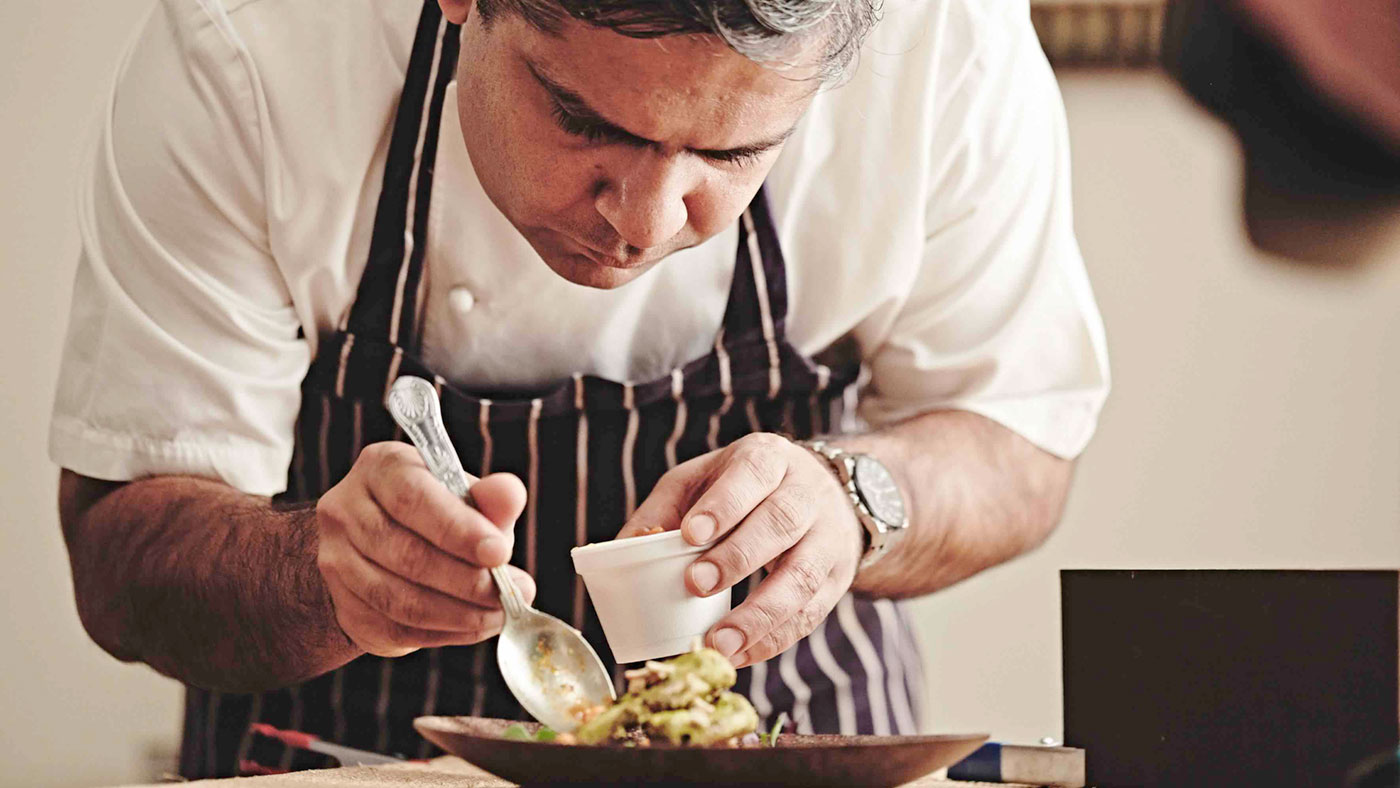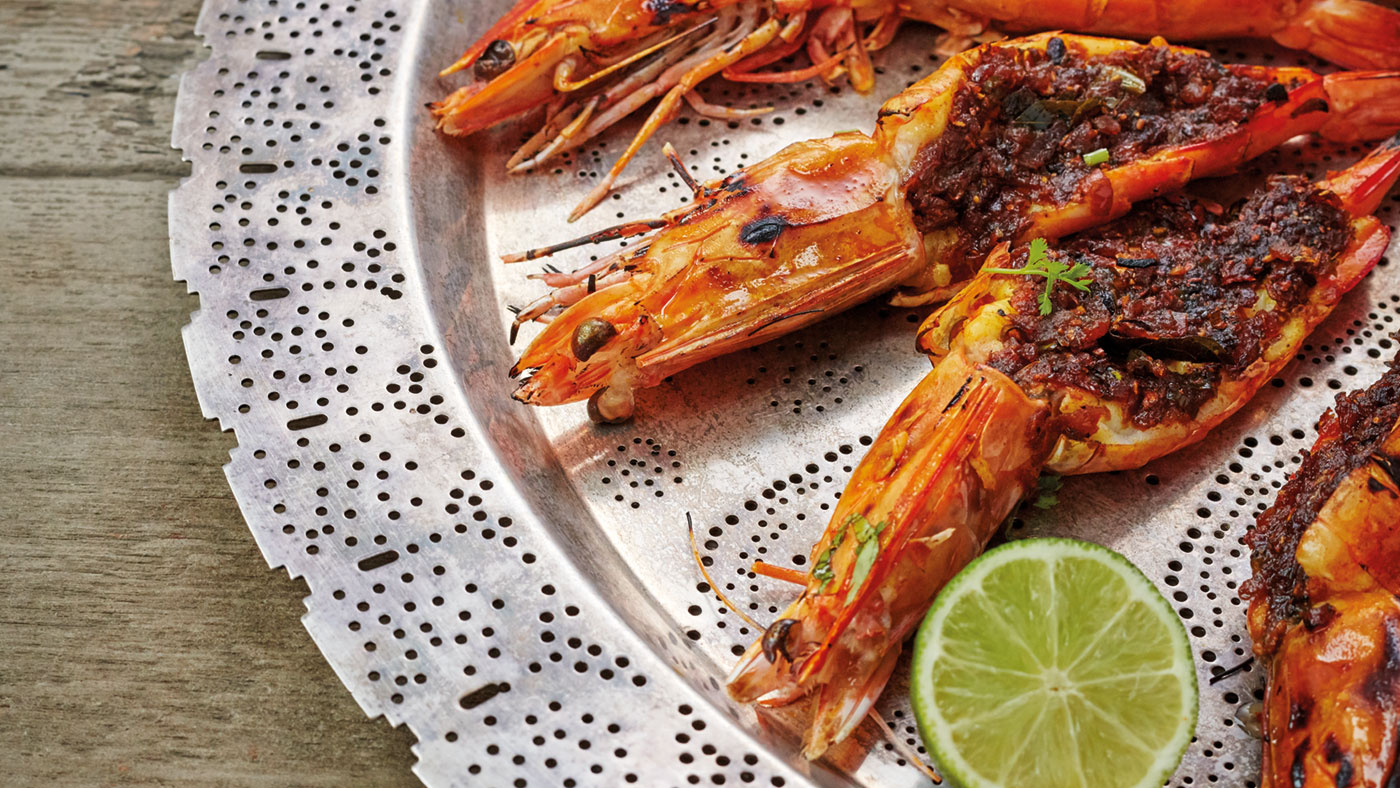Vivek Singh: Indian Festival Feasts
The founder of London's Cinnamon Club and Cinnamon Kitchen talks about an average year of feasting with family

A free daily email with the biggest news stories of the day – and the best features from TheWeek.com
You are now subscribed
Your newsletter sign-up was successful
Indian Festival Feasts is my sixth cookbook – I've already done a number of restaurants and didn't think I had another one left in me. But every time I talked about a dish, or a memory that it triggered, I found that it was related to a celebration. I realised that no matter what the origin of the festival or what the occasion of the celebration was, invariably the expression of it ended up as food. Writing about festivals was also particularly enjoyable in the sense that they were part of my childhood, but involve dishes and menus that aren't necessarily the kind of food I cook in my restaurants all the time.
It was a tough ask trying to narrow down the list of festivals to the 13 I included. I followed the calendar for 12, and then included a Bengali wedding as the final chapter, which was incredibly important to me as it's no less a celebration than any other festival. Growing up in a small town in Bengal in the 1970s, it struck me even then how multicultural it was. Festivals such as Makar Sankranti Pongal, Diwali and Holi have a special meaning to me as we celebrated them as a family. I went to a Christian Brothers school in Asansol, where the community was made up of lots of Christians and Anglo-Indians, so Christmas was also a big festival for us, not least because we got long holidays. It's these kind of memories that stick with you.

I've also included slightly lesser known festivals that I hadn’t experienced first-hand myself, but came about by speaking with friends. I started researching Onam because Rakesh Nair, the head chef at the Cinnamon Club, who is also a very good friend of mine, asked to take his annual holiday at this time every year to go back to celebrate with family. And I worked for five years in Delhi, so I reached out to my friends who still live there to ask them what they do for Vaisakhi. Some of those who responded broke my heart by saying 'it's nothing more than a token festival for us living in urban Delhi. We go to the club, drink vodka, have a chicken sandwich and join the rain dance.' They don't treat it as its origin as a harvest festival. It brought home the fact that when people are quite close to the action they don't take such things as seriously.
The Week
Escape your echo chamber. Get the facts behind the news, plus analysis from multiple perspectives.

Sign up for The Week's Free Newsletters
From our morning news briefing to a weekly Good News Newsletter, get the best of The Week delivered directly to your inbox.
From our morning news briefing to a weekly Good News Newsletter, get the best of The Week delivered directly to your inbox.
One of the times I'm particularly fond of is the period between Durga Puja and Dussehra through to Diwali. In Bengal that time was described as Bijaya – the Victory. Victory of good over evil, of light over darkness, it is almost like a three-week-long Christmas. You go and visit everybody you know, exchange gifts and buy new clothes, and every night you're either hosting dinner or going over to someone else's place to eat. If you don't see someone during that period, it's the equivalent of dropping them from your Christmas list.
There is an element of different influences trickling into traditional festivals and tastes changing, as well as the social contexts around them. The thing that I find positive is that these festivals have transcended the boundaries of mere religious celebration to become social occasions. One of the times I used to look forward to as a child was when we were invited to an Iftar party for Ramadan or dinner at Eid-al-Adha, the sacrificial meal that happens in Muslim households. Most sacrifice a goat or lamb according to the rule of thirds; a third would be consumed in the house with family and neighbours, a third given away to relatives and the remaining donated to those less fortunate. Even after that there was a lot of food, so you'd go for dinner and there would be two different curries, a couple of biryanis and maybe some kebabs. You didn't have to observe any of the religious aspects, you just had to turn up and eat.

There's certainly an element of convenience creeping into to a lot of these festivals today, and especially in an urban setting where people are time-poor but still want to celebrate, albeit not necessarily in the religious way that was expected years ago. So people will serve fried chicken at Diwali, and that's fine because for many people it represents more than just the festival of light. It's a social occasion where people invite friends, exchange sweets and then at the end of the night have a game of cards to test whether the goddess of wealth is on their side.
I absolutely love Holi, the festival of colours. It's an amazing festival that doesn’t require any abstinence, fasting or other practices – the only rule is that there are no rules. There's no formality around it, and you serve get-up-and-go food for snacking throughout the day. At Cinnamon Kitchen, my restaurant in the City of London, I make the celebration go far beyond the special menu, which we serve for a week or two. Throughout the time, literally thousands of people come down and participate in throwing paint at each other, even strangers. It's not that everybody who attends is potentially a devoted Hindu, it's about coming together, letting your hair down, forgiving any differences you have and looking forward to the future.
A free daily email with the biggest news stories of the day – and the best features from TheWeek.com
VIVEK SINGH is a pioneer of modern Indian cooking, whose restaurants include the Cinnamon Club, Cinnamon Kitchen Cinnamon Soho and Cinnamon Bazaar. His latest cookbook, Indian Festival Feasts, is published by Absolute Press (£26, absolutepress.co.uk).
-
 James Van Der Beek obituary: fresh-faced Dawson’s Creek star
James Van Der Beek obituary: fresh-faced Dawson’s Creek starIn The Spotlight Van Der Beek fronted one of the most successful teen dramas of the 90s – but his Dawson fame proved a double-edged sword
-
 Is Andrew’s arrest the end for the monarchy?
Is Andrew’s arrest the end for the monarchy?Today's Big Question The King has distanced the Royal Family from his disgraced brother but a ‘fit of revolutionary disgust’ could still wipe them out
-
 Quiz of The Week: 14 – 20 February
Quiz of The Week: 14 – 20 FebruaryQuiz Have you been paying attention to The Week’s news?